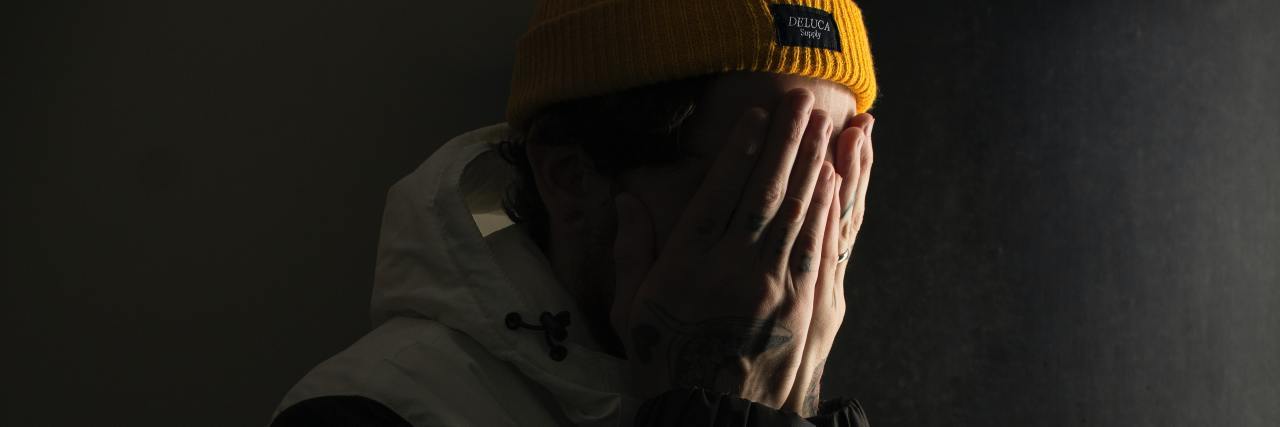The accusation my mental health issues are nothing more than a plea for attention has always stung. Such claims stir a hornet’s nest of feeling, though the tangle can be sorted into three specific emotions. Anger, that a real and serious health problem affecting me is being dismissed. Frustration, that my motives for seeking attention are constantly misunderstood. And shame. Shame for needing help. Shame for being “weak.” Shame, most of all, because my accusers are right. I want attention.
The problem arises in the misunderstanding over what my plea for attention is about. My accusers assume attention is an end unto itself, and, lacking any respectable means of attaining it, I invented a host of debilitating symptoms to turn myself into a sympathy-inducing, if not interesting, spectacle. When my mental health issues are the reason I am seeking attention, my accusers are wrong. In those moments, I am malfunctioning, need help and cannot think rationally enough to obtain assistance in a manner others find more comfortable.
In distress, I am a sailor barely keeping his head above water in a pitch black, violent sea. My rescue beacon shrieks loudly; it doesn’t necessarily draw the attention of people who can or want to help. As I cling, half-drowned, to the splinters of an oar, all I can do is hope my beacon is heard by someone who understands. Most people don’t, dismiss me as an “attention seeker” and my shame deepens.
I was raised by parents who believed attention seeking was wrong, period. I had a tendency as a kid to show off at times and, while my parents couldn’t scour that behavior from me entirely, they instilled a sense of shame so deep that on any occasion that is remotely attention seeking on my part, I am wracked with guilt. I once sat in a restaurant for half an hour before a server noticed me. She asked why I hadn’t spoken up. Announcing my presence to her would have sent me down a shame spiral, because my parents warped my sense of what is and is not appropriate regarding the attention we receive from others. I grunted something monosyllabic.
The greatest sense of peace I have felt in the last decade occurred when I took general chemistry in college. I needed no attention or affirmation from anyone. It was enough to sit alone in a library study room, working problems, comparing my work to the answer key and seeing I had gotten it right. My contentment was short-lived; organic chemistry upset my equilibrium. I struggled and needed too much help. I became depressed, struggled with insomnia and started missing classes. My lab reports every week became snarkier and snarkier. My last lab report was filled with parodies of the card game, Magic: The Gathering. Cards like “Calvin May,” “Heartbroken Student” and “Organic Chemistry,” with a Creature type of “Depression Spawning Hell Demon” and rules text that said, “When ‘Organic Chemistry’ enters play, ‘Calvin May’ loses the game.”
This plea for attention was motivated by the hope the professor would recognize chemistry was wrong for me and give me permission to quit. I couldn’t admit to myself chemistry was making me miserable and I had failed, yet again, to find a suitable career path. Nor could I assert myself directly and say, “I don’t want to do this anymore.” I broke free when my vehicle broke down and I put off getting it repaired until after it was too late to go back to school. With the yoke of college off my shoulders, I was able to regain a rational frame of mind and assume proper responsibility for my choices. Walking away from chemistry was the right thing to do. It would have been less distressing, for myself and others, if I had been lucid enough to walk away sooner.
I once had a girlfriend who had trained to do musical theatre from a young age and had parents in the entertainment industry. Her views of attention seeking were much different from what my parents instilled in me. She suggested it isn’t necessarily a horrifying evil to be noticed by others, and pointed out creative endeavors, like musical theatre or writing. Creative endeavors, essentially, are attempts to connect with others. In an episode of “The West Wing,” Laura Dern, playing the poet laureate, said, “An artist’s job is to captivate you for however long we’ve asked for your attention.” She adds that poetry is “how I enter the world.”
I want attention. Not always, and not always in a constructive way. I ask for your attention because I hope to be understood and because I hope through understanding, we can build a world that has fewer sharp edges and more places where we can run barefoot through the grass.
Unsplash image by Felipe Pelaquim

